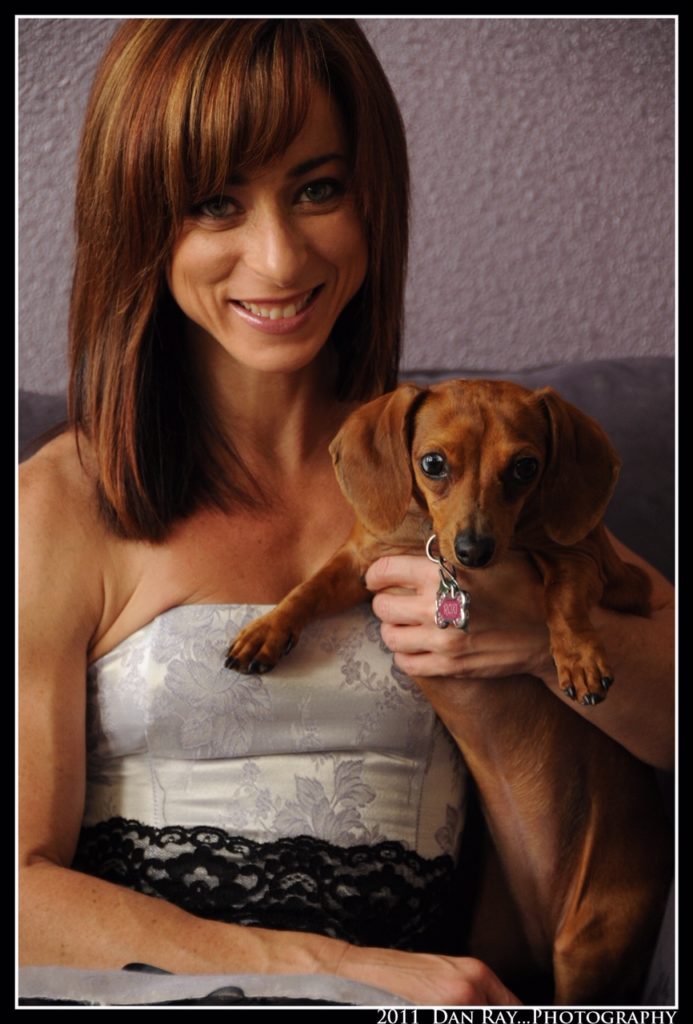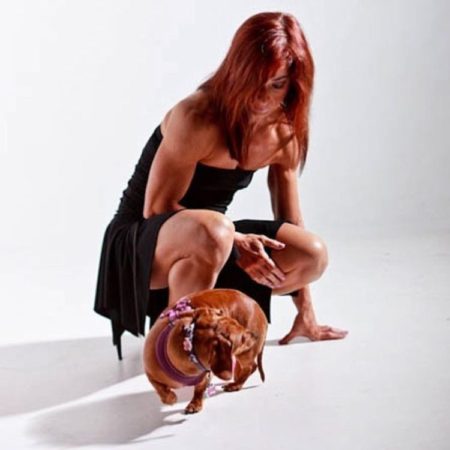You don’t get something with the intention of losing it.
I don’t know how to do this. Walk this dusty path of grief. I understand that one foot must shuffle past the other because the world doesn’t stop just because your loved one died. But the dust gets in my eyes. Clogs my nostrils. Fogs my vision. It burns my lungs when I breathe it in, and makes me cough.
I’m not lonely. I’m just lost. I come home and think I’ll sit and write and read and get things done. But I just stare at the silence. Didn’t you know? You can see silence. I usually bask in it. I despise when I’m in a public cardio room–reading, thinking–and someone plays music on her phone without wearing headphones or someone turns the TV on without asking anyone else in the room if we mind the white noise. But this silence is black noise. It darkens everything, the same way your vision darkens when you feel woozy from doing fasted cardio after a low-carb day. Maybe that’s why I am so hungry. Hungry for my companion. Hungry for her smell, the softness of her fur, the warmth of her cat-like tongue that left light trails of kisses minus the slobber most big dogs include with their love. I am hungry. Ravenous. I try eating her memories. But they don’t taste the same. They don’t fill my belly. I walk away unsatiated. I want to dig through my pantry. Eat her biscuits. Gnaw on her bones. I’d clarify that I want to gnaw on her rawhide bones, but maybe it’s her I want to ingest. So that she runs through my bloodstream, feeds my muscles, builds my heart. I’d swallow her tennis ball too if I thought it would help. Then she’d have something to chase through my veins before lying down within the soft lining of my stomach, a built-in blanket that allows her to burrow within her mother.

I wrote these three paragraphs a week or two after Roxi died. I cannot say any of this has gone away. Except now I do feel lonely. When Roxi was in my life, I felt like one of the cool kids. Special. Privileged. Part of a secret society, a hidden club that required a dog as the key or the pass in order to enter. Now what? Who am I? I was a dog mom. Who am I now? I have a hook nailed in the wall by my front door that is made of wrought iron shaped like a dachshund, and it has the word, “dachshund,” painted on it. Roxi’s leashes and halter and jersey still hang on those black hooks. Hooks I used day in and day out, multiple times to take her out and bring her in. Now, those items just sit there, watching me as I walk in and out of that front door. Do they understand why they haven’t moved in months? Do they know she is gone? Do they look for her? Do they miss her?
Four months after Roxi’s death, and the awareness of it still punches me in my organs. My insides feel like an MMA fight gone out of control. My intestines wrenched. My stomach clenched. My heart in a choke hold. My lungs gripped and stripped of air. I think my spleen might have burst. I know my gut has lurched. I fight to get to the corner, hold the ropes that surround the ring of life, shield my eyes from the brightness of public scrutiny, hang my head and wonder when the spinning in my brain will ease up, calm down.
I read several articles explaining that the loss of a dog can actually be a tougher grieving experience than the loss of a human in a person’s life. I can attest to that. My grandparents’ deaths devastated me. Even debilitated me for weeks and months. But losing Roxi is different. She was in my daily routine, morning to night. I slept with her. If I was on the couch, she was on the couch. Unless I was eating, and then she was at my feet, one paw on one foot of mine, reminding me she was there, reminding me I was her human. Her eyes were always on me. She barked when someone knocked on the door. She ran to the door when I opened it. I told her, “I’ll be back; Mommy loves you,” every single time I left. I carried her up and down stairs. I put on my make up in front of her. I cooked my meals with her waiting by my side. I carried her up and down stairs to protect her back. I played with her. Bought her blankets and toys and bones. I fed her, bathed her, held her. I thought she was six weeks old when I brought her home, but I looked back at the dates and realized she was actually just over five weeks old. At just one and a half pounds, that little creature who fit in one palm saw me as her mommy.
I will never have a child. I’ve never had a sibling. And I feel a little like I don’t have a mother. But I had Roxi. And now I don’t. Not physically. I can’t hold that little face. I can’t grab that little tail. I can’t stroke her little paws. Or feel her little tongue. Or hear her large bark. At night, I clutch my pillows, wrap my body around them because the bed feels strange without the warm furnace that is a miniature dachshund. And I think back on our very first night together, me lying on my back on the buttery yellow couch in the living room of my old apartment, and this itty bitty thing with the big bug eyes lying on my sternum, her tiny chin resting against my skin, her gaze on mine until she fell asleep. I stayed up and watched her, listened to her soft breathing and soft snores that moved like wisps of dandelion wishes in the wind. I held her like that often when she had grown up into a nine-pound adult. She breathed the same way, snored those soft puffs the same way, moved her belly up and down, and my heart would explode like confetti at a Super Bowl.

I loved her. Truly loved her. Always will love her. And that’s why it hurts so badly. But pain is a weight that sits on our souls like flesh on our bones. Without the pain, we would be skeletons. Void of character. No place to hold the blood that feeds our organs. Without the pain, our hearts would fall out, sensations would disappear, and our brains could not compute. Maybe because my childhood felt riddled with pain—physical and emotional—I identify with it, understand the need for it, sometimes bathe in it, and let the scent of it linger. I don’t know how to live life without a pinch of angst. So yes, one day I will get another dog, knowing that dog will die too, and I will crack and crumble all over again. I will be like the people in earthquake and hurricane zones, in mudslide and volcano regions, who build again and again even though repeated ruin is inevitable. It’s the human spirit. To try and die and try again because we crave the ties that bind us to survival.


https://scontent-dfw5-1.xx.fbcdn.net/v/t1.0-9/47247273_10156796327154868_3363961335623712768_o.jpg?_nc_cat=100&_nc_eui2=AeHeMt46QZV_l1L9S2GAtbnMmIG6MjW-yaZRvqJsO3mKs0BTkbgADl2hPH9Co8S-KhZxtfQ7NwVPoVy3XUBZhV5IuwptPy81stKBrb50qSQ6OQ&_nc_ht=scontent-dfw5-1.xx&oh=fe9d2aa8f3fb8ee936fdce231a7610d5&oe=5C948DA4
Sorry for the long link. Our Willow isn’t very photogenic at all. After we lost our dad, Willow became my responsibility and I know I could never replace our father. They loved each other a lot.Some people just don’t understand the pull these animals have on our hearts. Willow is my world, for sure.
I feel like we’re kindred spirits, almost. She’s very anti-social and never let people touch her at all. She’s gotten better in her older years (she’s now twelve-and-a-half) and lets people pet her so long as I’m holding her. Anti-social people and dogs let VERY few people in and since I’m one of the few Willow has let in, I feel honored.
The rawness of this post blew me away, and I’m glad you finally felt comfortable enough to share it. Roxie meant the world to you and everyone that knows you knows that. She loved a great human and I’m glad she was able to brighten your life all those years. RIP Roxie
You have opened up your heart & mind to us in your writing. My heart is so reminded of my little Harley dog. You pulled out of me the deep love for him. I love the fact that you are willing to allow yourself to give your heart to another fur baby knowing that life has a cycle. Love you Lady